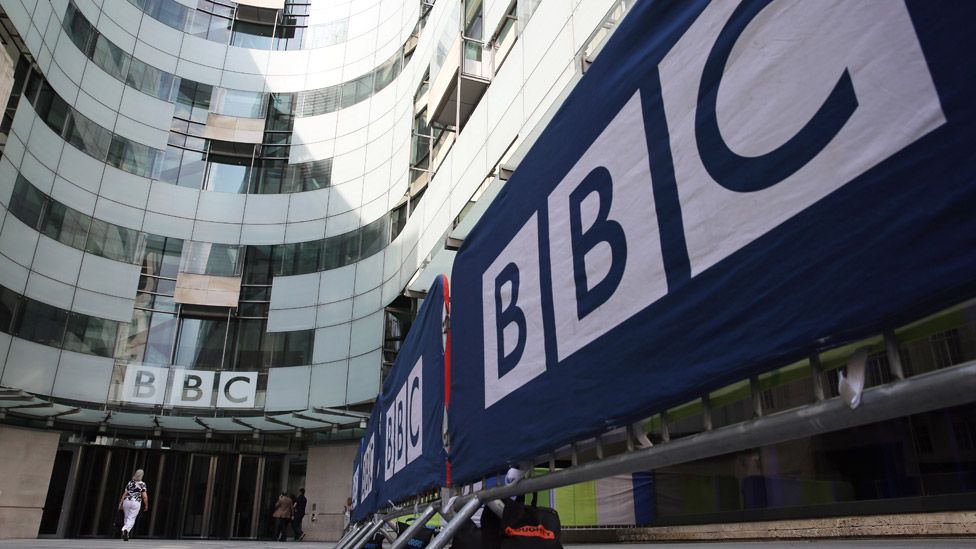BBC review: Ofcom to gain more powers over BBC News website
- Published
- comments

Ofcom is to gain more powers over BBC online services, including the BBC News website, as part of a series of changes unveiled by the government.
Under the plans, the media regulator will be able to take enforcement action if articles don't meet relevant broadcast standards.
The move is intended to give audiences greater confidence that the BBC is being held to account, ministers said.
The BBC said it remained "the number one source for trusted news".
Ofcom said it welcomed the government's recommendations, "which will support us as we continue to hold the BBC to account on behalf of audiences".
The BBC is investing more money into digital journalism, as audiences increasingly switch from television to online news.
Currently, Ofcom oversees the BBC's TV, radio and on-demand output, but it has no formal enforcement powers for BBC online material.
It can only issue an opinion on whether the BBC has observed editorial guidelines in its online content.
But the government is now extending Ofcom's regulation to parts of the BBC's digital services. This includes to areas over which the broadcaster has editorial control, including the BBC News website and the BBC's YouTube channel.
The move is part of a package of changes which are being recommended by ministers following a review of the BBC, at the halfway point of its current charter.
The review looked at areas such as editorial standards and impartiality, the way the BBC handles complaints about coverage, and the effectiveness of its governance arrangements.
The government consulted with the BBC and Ofcom in developing the recommendations.
A changing media landscape
The Department for Culture, Media and Sport said impartiality remains "an ongoing issue for audiences" and cited "a lack of public confidence" in the way the BBC currently handles complaints.
It said it would review the effectiveness of the BBC's new social media guidelines, which were brought in following a row over Gary Lineker's social media posts.
Other recommendations include greater independent scrutiny of complaints handling, and improving transparency for commercial media organisations.
And Ofcom will be given a new legally binding responsibility to review more of the BBC's complaints decisions.
The BBC is also being urged to better reflect diverse views in decision-making and improve engagement with underserved audience groups.
Culture Secretary Lucy Frazer said the government wanted to see "a strong, independent BBC" that would thrive in years to come.
But she warned that in a rapidly changing media landscape, the BBC needed to adapt or risk losing the trust of audiences.
"We have recommended reforms that I believe will improve accountability while boosting public confidence in the BBC's ability to be impartial and respond to concerns raised by licence fee payers," she said.
"These changes will better set up the BBC to ask difficult questions of itself, and make sure Ofcom can continue to hold the broadcaster to account."
A BBC spokesperson said the review was designed to look at the corporation's governance and regulation, adding: "We're pleased the government's findings reflect that overall these are working well."
On the topic of impartiality, the spokesperson said "no other organisation takes its commitment to impartiality more seriously", and that the corporation has well-established plans to continue to improve standards.
"We know this matters to audiences and the BBC continues to be the number one source for trusted news, with the highest scores for impartiality and accuracy," they said.
The spokesperson said the BBC was "operationally and editorially independent", adding: "We remain committed to continuous improvement to ensure we deliver for all licence fee payers."
Related Topics
- Published29 November 2023
- Published30 November 2022
- Published18 October 2022